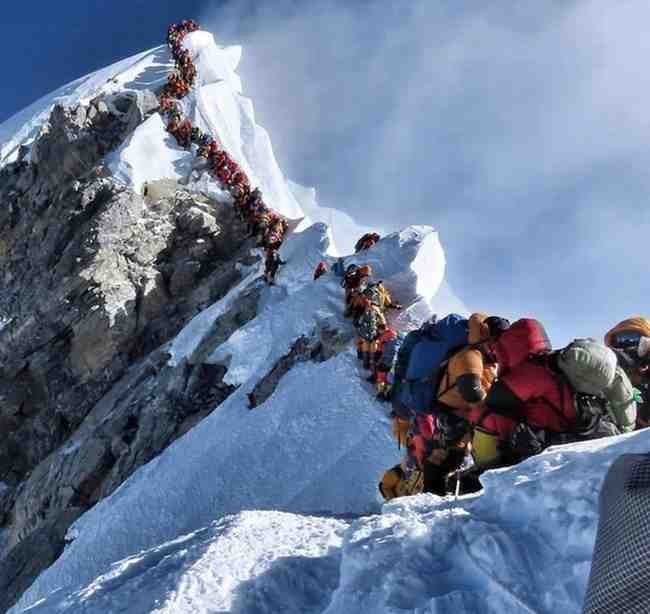The Nepal government has barred a solo trek on Mount. Everest and all other mountains higher than 8,000 meters, which makes Nepal the only country that does not permit a lone expedition of any kind.
This decision was released in the Nepal government’s journal and is a very significant advancement in the country’s mountain climbing policy. Following safety and environmental issues, the government is seeking more trekkers’ regulations to ensure that they get enough support and supervision.
These modifications are made with the sixth amendment to Nepalese trekking regulations, which seek to better protect climbers and conserve the radiance of the national mountains.
In the lone hiking of the 8,000-meter-high mountains in Nepal, hikers would need an altitude worker to monitor them or accompany them, which was a norm officially on February 4.
The recent amendment also declared that in any two-member trek teams, one has to be a certified mountain guide or the team has to have one altitude worker as the coordinator. This provision is kept for all high trekking, including expeditions of Everest, Lhotse, Makalu, and other high peak mountains.
The government’s policy to ban solo trekking has left trekkers no option but to abide by new norms. The government stated clearly that any and all hikers, regardless of their level of hiking expertise, will not be allowed to go to these mountains independently.
These regulations will also apply to alpine-style trekkers, who tend to have a more paced and minimalist style of hiking, and the trekking-style climbers, whose clear focus is on heavy logistical assistance.
These new regulations on expeditions come with a raise in fees in comparison to CLT South, especially for foreign mountaineers. Mount Everest (South Route in Spring): With the increase of $4,000, it is now $15,000 per climber.
Everest Autumn and Winter Expeditions had a fee raise of $1000, resulting in the new charge of $3,750. Other 8,000-meter peaks in spring doubled the fee from $1,800 to $3,000, and in winter it costs $1,500, and the offseason fee is now set at $750.
With these rises in charges, foreign hikers will have to make greater amounts of financial commitments as compared to earlier.
As a way to ensure the accuracy of the expedition records, norms have been altered to require submission of original photographs showing the hiker standing on top of a mountain with his/her face clearly visible to the camera as proof of the summit accomplishments, complete with a range in the background.
Such steps are taken to prevent forged summit claims and ensure correct verification of all claims of successful climbers.
The recent changes also restrict the presence of family members at base camps to those who have received permission in advance. This is an attempt to manage the chaos that can be witnessed in the base camp regions.
In an attempt to accommodate the people that manage these treks to succeed, the government increased the daily wages for the mountain workers and liaison officers. This is under the government’s effort to improve working conditions within the country’s mountaineering industry.
Moreover, waste arising from the base camps, including human faeces, will no longer be left on the spot but rather will be swept up for appropriate disposal, in addition to the other waste materials. To further reduce the pollution problem in the mountains, using biodegradable waste bags has become mandatory.
These measures are taken to tackle the emerging disorder and to protect the beauty of Nepal for future generations.
These regulations will come into effect on September 1, 2025, which is going to bring major changes in the management of mountain ranges in Nepal.
The government targets to enforce more control over mountaineering activities in the country by taking strict safety measures, enforcing higher financial barriers, and increasing environmental safeguards.
These regulations will impact thousands of trekkers who wish to conquer the highest peaks in the world, so the Nepalese government is constantly working to create a much safer and more secure country for extreme adventures.








